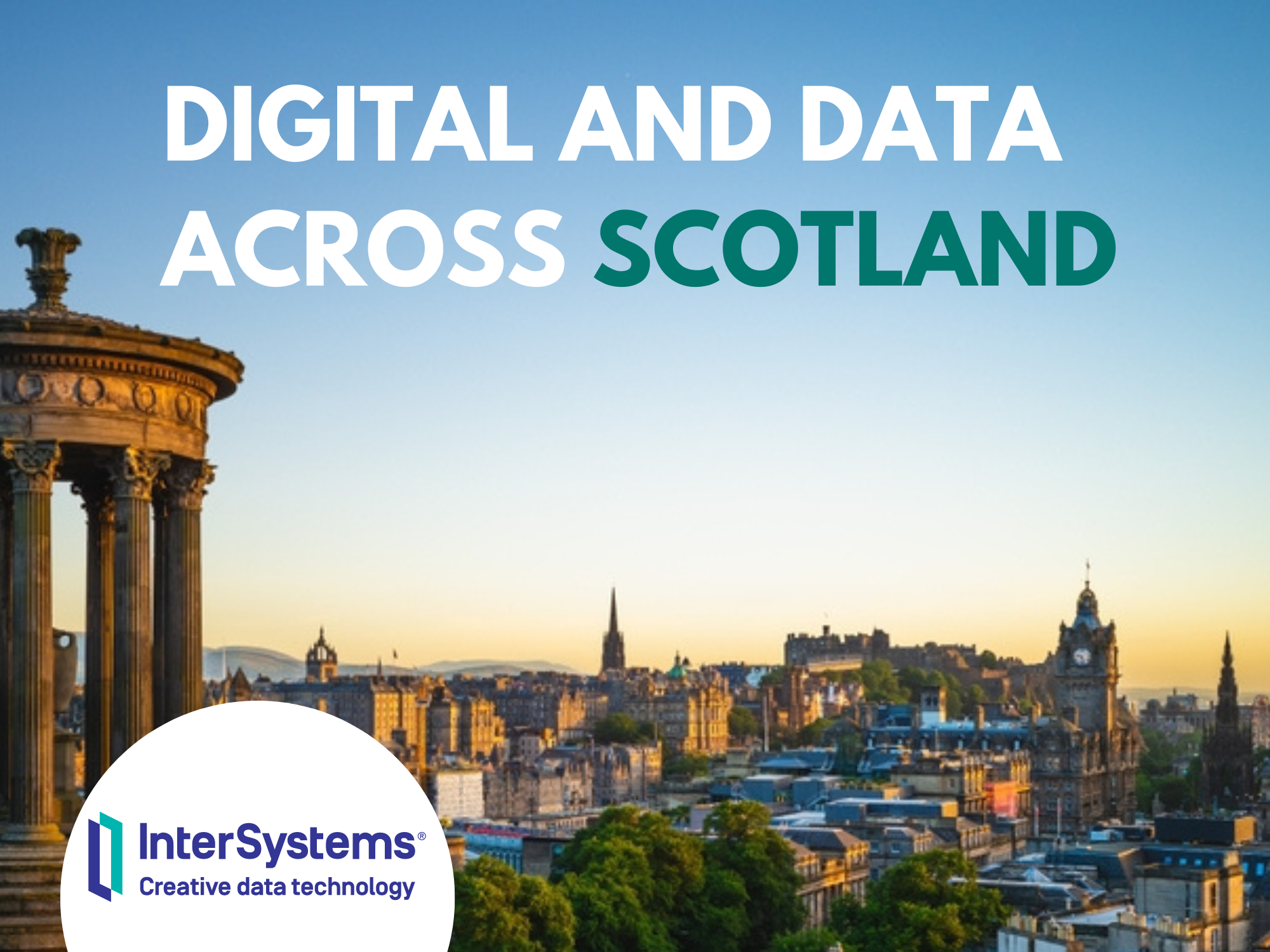Tech
Digital and data across Scotland: interviews, insight, strategy, innovations… – htn

We spoke with Jonathan Cameron, deputy director for digital health and care at The Scottish Government, to find out more about his experiences and insights.
“Scotland is going into a lot of the major transformation programme with digital at the forefront of our minds,” Jonathan reflected, with focus placed on areas such as automation of administration, workforce support, better patient outcomes and better integration of services. “It’s at the heart of what we are trying to do in Scotland, in social care as well as health care. It’s important to bear that in mind; social care and social work are major considerations for us, and we need to be mindful, based on the fact that this is a joint approach with local government, that we look for integration points where we can bring services, staff and users together. We need to remove the artificial barriers between services and look at how we structure things.”
A key focus lies in bringing the workforce along for the digital journey, Jonathan shared, in terms of confidence as well as practical skills. “That applies to all levels – we’ve done a lot of work at board level around engagement and understanding, as well as working with the frontline who use these tools in their day-to-day roles.”
In terms of recent projects and programmes, Jonathan highlighted how a theatre scheduling tool has recently been launched aiming to optimise theatres and help tackle waiting lists. “We are trying to taking every opportunity to reduce the lists,” he said. “We’re seeing huge changes in this space – the two boards that we have piloted the tool in have indicated that they feel much more confident about their ability to maximise theatre time. On a financial level, it has saved millions of pounds already.”
Scotland has also passed the milestone of remotely monitoring 100,000 patients for their blood pressure. “There’s been a lot of progress with remote healthcare, which is a big consideration for Scotland because of our rural landscape. In terms of outcomes, we are seeing reductions in hospital appointments and reductions in miles to attend appointments too – we estimate that about 60 million miles have been saved in total. We very much see digital as having a role to play in helping us tackle Scotland’s carbon footprint and responding to the climate emergency.”
There is a lot of work ongoing around Scotland’s core infrastructure, Jonathan continued. “There are opportunities with new technologies with AI, but first you need to upgrade your network lengths, you need to have good broadband, you need to have the right servers and cloud providers. Some of that gets very complicated, so we have been putting a lot of thought and investment into making sure the infrastructure is in the right place, to allow us to make use of the right tools at the right time.”
On what the appetite is like for digital healthcare in Scotland, Jonathan referenced the sea change that has been witnessed since the COVID pandemic. “It was a real tipping point for acceptance of digital, for patients but also for staff; it made people realise that yes, it’s safe to use and yes, it can bring benefits. Prior to that, we did see pockets of resistance; we were already starting to overcome it when the pandemic hit, but it has really accelerated since then.”
Citizens “want digital now”, Jonathan added. “The vast majority expect it, I think, and even need it to fit in with their lives. However, we are very mindful of digital exclusion. Coming back to our remote consultation work, we have taken steps such as making digital tools or services accessible in places like libraries or town halls to help people with access. We’re conscious that not everybody can afford certain technologies or broadband, so we are trying out different methods to overcome that.”
From a workforce perspective when it comes to attitudes around digital, Jonathan reflected that the focus lies in building confidence that it is the “right” thing to do. “There’s a massive programme of work around workforce development, capabilities and digital maturity so that we understand what we are good at, what we are less good at, and what needs attention so that we can improve.”
Bringing it back to working with senior teams, Jonathan said: “We’ve invested a lot of time in getting leadership teams on board, embedding the importance of digital and also the art of the possible. We need to support chairs and non-executives to ask the right questions about digital and make sure that their organisations are moving in the right way. We have done a digital mindset course for senior execs that has been really well received.”
Strategically, The Scottish Government has set out three clear priorities when it comes to digital healthcare, with an underpinning programme. “We need to accelerate our work on citizen access to services and information – that’s our digital front door programme,” Jonathan explained. “We are deliberately going into that with the mindset that it a digital front door and health and care, because we don’t want to get siloed. Similarly, we don’t want that door to just take the form of an app; we want different channels to suit people’s needs.”
The second priority is integrating health and care records, bringing the workforce together and enabling the sharing of information. “This builds upon work we completed many years ago around our emergency care summary,” he added.
Finally, Scotland is prioritising digital prescribing, with Jonathan noting that Scotland has “recognised that it needs to be easier to access medication in a safe manner, and that there is more we can be doing digitally in this space.”
Underpinning everything, and Jonathan’s main priority at present, is that of cyber security. “It’s front of centre of everything, and trying to keep up with the vast and ever-changing threat landscape is a major challenge,” he said. “We need to make sure we are doing everything we can, as much as we can, to secure our systems and enable access safely.
What excites Jonathan in this space, on a personal level? “I’ve been in and around digital healthcare for around 20 years, and I still get amazed by the opportunities that digital and data can bring,” he said. “I’m excited to see the difference that it makes as we move in the right direction with citizen access and empower people to do more for their own health. The prevention agenda is going to be really important, and we need to support that shift is thinking. Can we use digital and data tools in a different way to encourage people to lead healthier lives? It’s about being part of the wider ecosystem that makes change for people’s lives, and that is always what has driven me.”










